What Size Generator To Run Air Conditioner? [Ultimate Guide]
If you want to learn “What Size Generator To Run Air Conditioner?” I got you covered. This article contains real-life examples and suggestions to determine the actual power output of the generator for your AC unit.
As summer approaches, keeping your home cool becomes a top priority. However, power outages can happen at any time, and having a reliable generator to power your air conditioner becomes essential.
As an engineer, I know that choosing the right generator size is critical to ensure your AC unit runs smoothly and efficiently.
In this article, we will delve into the factors that impact generator size and provide information about What Size Generator to Run a 2 – 5-ton AC Unit.
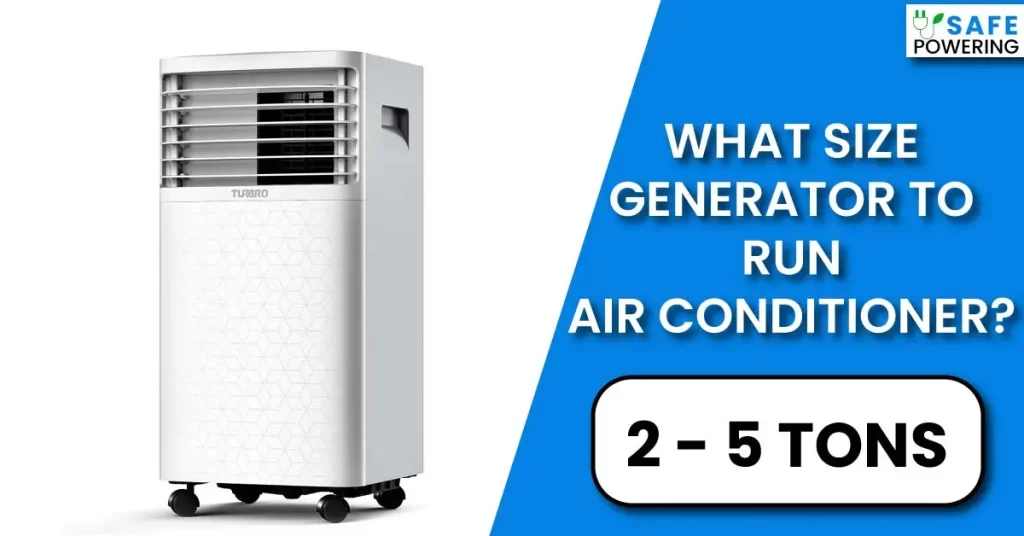
What Size Generator To Run Air Conditioner? -[2 – 5 Ton]
For a 2–5-ton AC unit, you need to consider the starting current and running wattage of the unit. A 2-ton AC unit requires a generator with a minimum capacity of 5,000 watts, while a 5-ton unit needs a generator with a capacity of at least 12,500 watts.
However, it’s always best to consult with an electrician or HVAC technician to ensure you choose the right size generator for your specific AC unit.
Here is a detailed data for the question:
| AC Unit Size (Ton) | Generator Size (kW) |
| 1.5 ton | 5-6 kW |
| 2 ton | 6.5-8 kW |
| 2.5 ton | 8.5-10 kW |
| 3 ton | 10.5-12 kW |
| 3.5 ton | 12.5-14 kW |
| 4 ton | 14-15 kW |
| 5 ton | 16-18 kW |
Generator Required to Run a 5-Ton AC Unit?
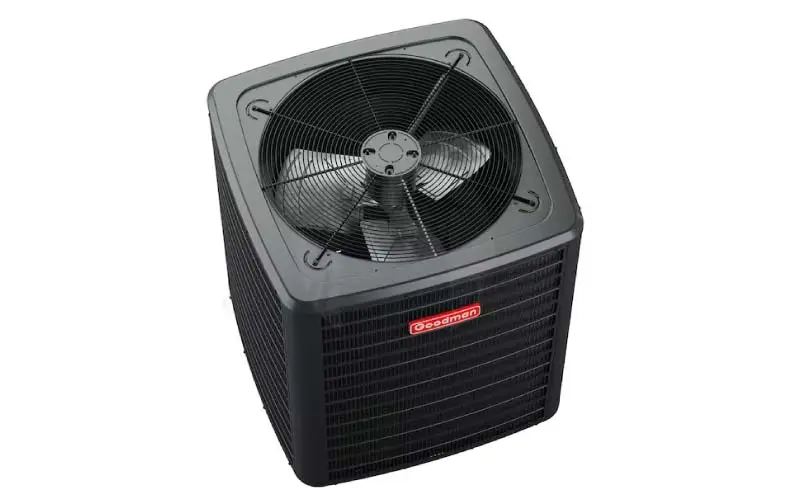
The generator size required to run a 5-ton AC unit is typically between 16-18 kW, but that is not always the case. There are many energy-efficient Ac units available in the market.
To calculate the generator size needed to power a 5-ton AC unit, you need to consider the starting AMPS and running watts of the AC.
A 5-ton AC unit typically requires a starting current of around 50 amps and a running wattage of around 6,000 watts.
To provide stable power to the AC unit, the generator’s capacity should be at least three times the starting current of the unit.
So, for a 5-ton AC unit with a starting current of 50 amps, the generator’s capacity should be a minimum of 150 amps. This translates to a generator size of around 16-18 kW.
However, it’s worth noting that the actual generator size needed may vary depending on the specific AC unit’s starting current and running wattage.
For example, if your 5-ton AC unit has a higher starting current or running wattage, you may need a larger generator to power it.
If you are unsure, contact an HVAC technician to determine the appropriate generator size for your specific needs.
They can also help you factor in other considerations, such as the local climate, altitude, and other electrical loads on the generator.
Here are a few examples of generator sizes recommended for 5-ton AC units:
In summary, choosing the right size generator is essential to power a 5-ton AC unit effectively.
- Here is the detailed guide about what size generator to run a 5-ton AC?
Generator Required to Run a 3-Ton AC Unit?
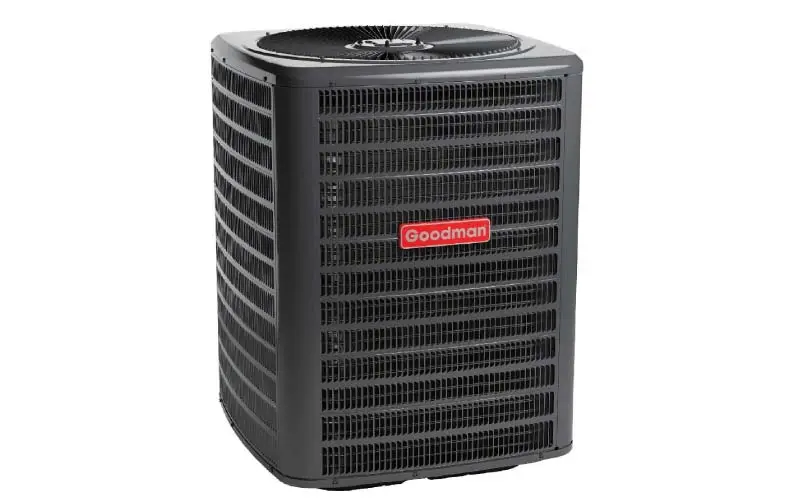
The generator size required to power a 3-ton AC unit typically ranges between 10.5-12 kW.
To determine the appropriate generator size to power a 3-ton AC unit, it is important to consider the unit’s starting current and running wattage.
A 3-ton AC unit typically requires a starting current of around 30-40 amps and a running wattage of around 3,600-4,800 watts.
To provide sufficient power to the AC unit, the generator capacity should be at least three times the starting current of the unit.
For a 3-ton AC unit with a starting current of 30-40 amps, the minimum generator capacity required would be around 90-120 amps, which translates to a generator size of around 10.5-12 kW.
However, it’s worth noting that the actual generator size required may vary depending on the specific AC unit’s starting current and running wattage.
Factors such as the local climate, altitude, and other electrical loads on the generator should also be taken into consideration.
Here are some examples of generator sizes recommended for 3-ton AC units:
In summary, choosing the right generator size is crucial for powering a 3-ton AC unit.
- Here is the detailed guide about what size generator to run a 3-ton AC?
Generator Required to Run a 2-Ton AC Unit?
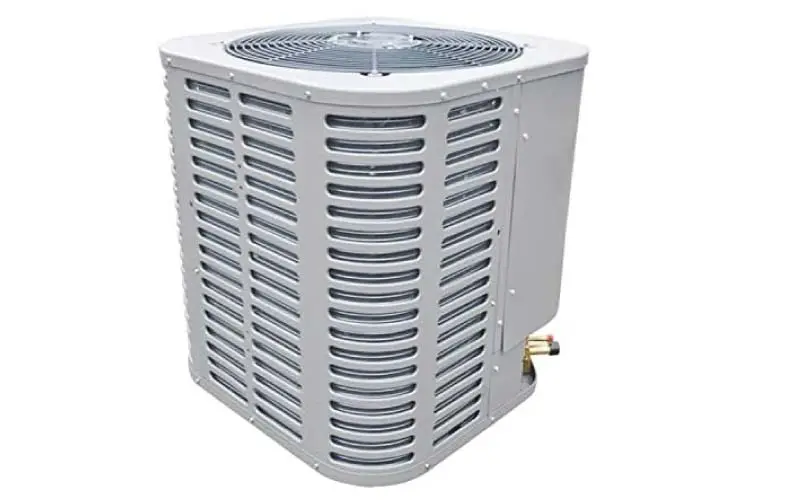
The generator size required to power a 2-ton AC unit ranges between 7-8 kW, depending on the specific unit’s starting current and running wattage.
A 2-ton AC unit typically requires a starting current of around 20-25 amps and a running wattage of around 2,400-3,200 watts. To determine the appropriate generator size, it is important to choose a generator with a capacity of at least three times the unit’s starting current, which would be around 60-75 amps.
Here are some examples of generator sizes recommended for 2-ton AC units:
Always consult with an expert to determine the most appropriate size based on your specific needs.
- Here is the detailed guide about what size generator to run a 3-ton AC?
How to Determine the Power Requirements of a 2-5-Ton AC Unit?
1. Determine the AC’s Tonnage:
The tonnage of an AC unit refers to its cooling capacity and is typically indicated in the model number. For example, a 2-ton AC unit has a cooling capacity of 24,000 BTUs per hour.
2. Find Running Watts:
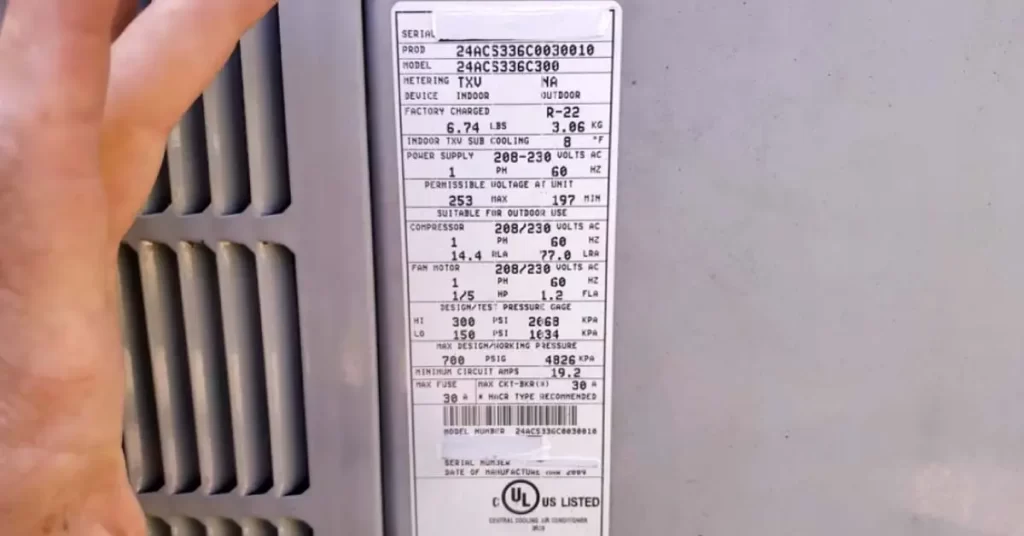
The running wattage of an AC unit is the amount of power it requires to run continuously. This information can usually be found on the unit’s data plate (Energy Labelling) or in the manufacturer’s specifications.
3. Find the Starting Current:
The starting current is the initial surge of power required to start the AC unit’s compressor. This information can also be found on the data plate or in the manufacturer’s specifications.
4. Calculate the Total Power Requirement:
To calculate the total power requirement, you’ll need to add the running wattage and starting current.
For example, if a 3-ton AC unit has a running wattage of 3,500 watts and a starting current of 30 amps, the total power requirement would be 4,100 watts (3,500 watts + 600 watts). Motor-driven appliances use a bit of an extra burst of power to overcome inertia.
5. Choose the Right Size Generator:
Based on the above-mentioned data, as a rule of thumb, the generator’s capacity should be at least three times the AC unit’s starting current. For example, a 3-ton AC unit with a starting current of 30 amps would require a generator with a capacity of at least 90 amps.
Best Generators for 2 – 5-ton AC Units?
I have prepared 3 detailed tables containing the best possible generators for 2-5 ton AC units.
Top 5 Generators for 5-Ton AC Units
| Generator Brand and Model | Running Wattage | Starting Current | Surge Power | Recommended for 5-Ton AC Unit? |
| Generac GP15000E | 15,000 | 45A | 22,500W | Yes |
| DuroMax XP12000EH | 9,500 | 39.5A | 12,000W | Yes |
| Westinghouse WGen12000 | 12,000 | 50A | 15,000W | Yes |
| CAT RP12000E | 12,000 | 50A | 15,000W | Yes |
| Champion 100891 | 8,000 | 33.3A | 10,000W | Yes (for energy-efficient AC) |
Top 5 Generators for 2-Ton AC Units
| Generator Brand and Model | Running Wattage | Starting Current | Surge Power | Recommended for 2-Ton AC Unit? |
| Honda EU2200i | 1,800 | 16.7A | 2,200W | Yes |
| WEN 56200i | 1,600 | 13.3A | 2,000W | Yes |
| Westinghouse iGen2500 | 2,200 | 18.3A | 2,500W | Yes |
| Generac GP2200i | 1,700 | 14.1A | 2,200W | Yes |
| Pulsar PG2000iSN | 1,600 | 13.3A | 2,000W | Yes |
Top 5 Generators for 3-Ton AC Units
| Generator Brand and Model | Running Wattage | Starting Current | Surge Power | Recommended for 3-Ton AC Unit? |
| Champion 100519 | 8,500 | 44.8A | 10,625W | Yes |
| Generac GP5500 | 5,500 | 28.8A | 8,125W | Yes (for energy-efficient AC) |
| Westinghouse WGen7500 | 7,500 | 31.2A | 9,375W | Yes |
| DuroMax XP5500EH | 5,500 | 22.9A | 6,875W | Yes (for energy-efficient AC) |
| CAT RP6500E | 6,500 | 27A | 8,125W | Yes |
Frequently Asked Questions (FAQs)
What Is the Generator Size Required to Run an Air Conditioner?
In general, a generator with a power output of at least 3,500 watts is needed to run a small window or portable air conditioner, while a larger central air conditioner may require a generator with a power output of 7,000 watts or more.
How Can I Determine the Correct Size of the Generator for My Air Conditioner?
To determine the correct size of the generator for your air conditioner, you need to first check the AC unit’s label or manual to determine its starting current and running wattage. Compare it with the generator’s power starting amps and running watts to determine the correct size.
What Is the Starting Current of an Air Conditioner?
The starting current of an air conditioner is the amount of electricity required to start the compressor motor. This is typically much higher than the running wattage of the unit and can range from 1.5 to 2 times the running wattage of the AC unit.
Can I Run My Air Conditioner on a Generator That Is Too Small?
Running an air conditioner on a generator that is too small can cause the generator to overload and potentially damage the AC unit. Additionally, an undersized generator may not be able to provide enough power to start the compressor motor, leading to a failure to start or decreased performance.
Can I Run My Air Conditioner on a Portable Generator?
A portable generator can be used to power an air conditioner, but it must have enough power output to meet the starting current and running wattage requirements of the AC unit. It is important to note that portable generators are typically louder than standby generators and may require special precautions to reduce noise levels.
Can I Connect My Generator Directly to My Air Conditioner?
It is not recommended to connect a generator directly to an air conditioner. Instead, a transfer switch or interlock kit should be installed to ensure the safe and proper transfer of power from the generator to the AC unit. This will help prevent electrical shock, fires, and damage to the generator or AC unit.
Can A Generator Run An Air Conditioner?
Yes, a 5000 to 15000 watts generator will be more than enough to run almost any size of modern air conditioner.

Fareed, the highly skilled electrical expert, boasts 5 years of extensive experience in proficiently maintaining, repairing, diagnosing, and installing a diverse range of electrical systems.
